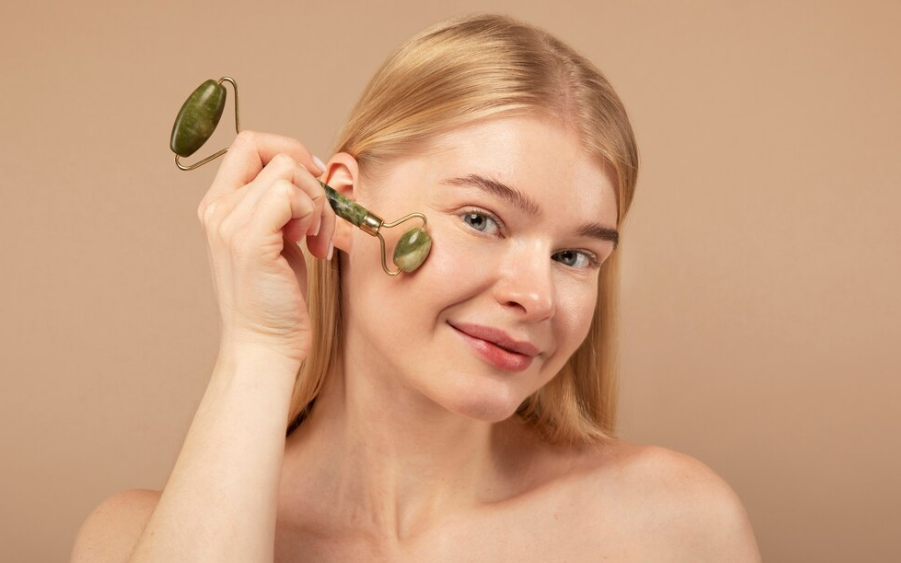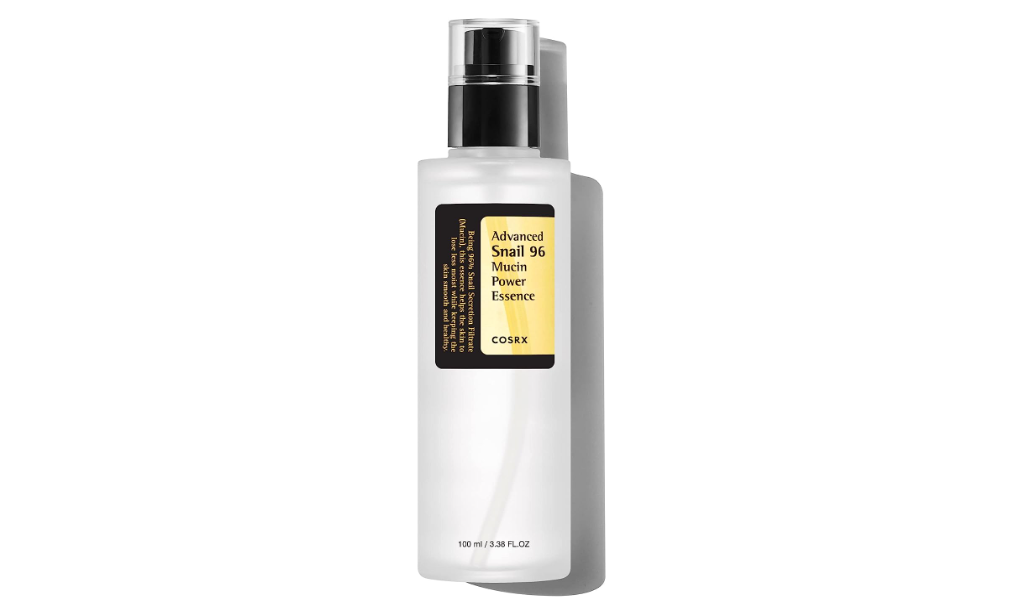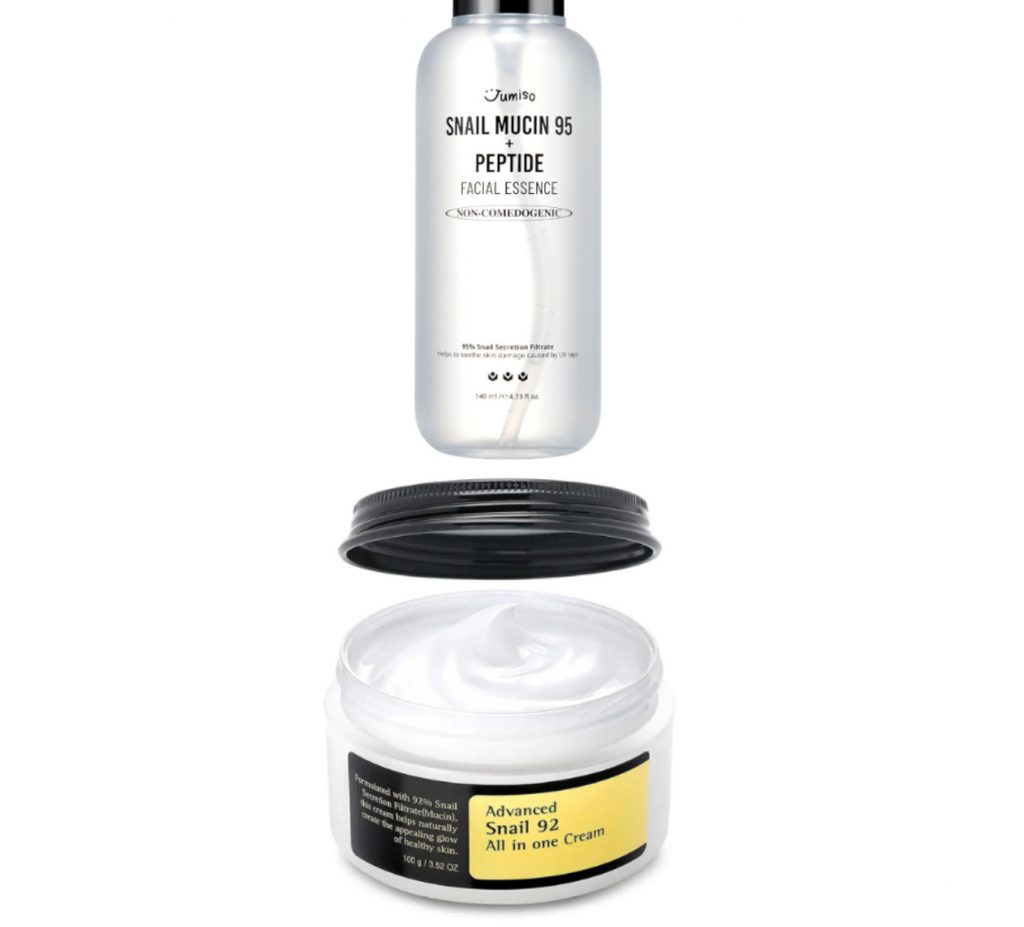Is Snail Mucin A Slimy Solution for Glowing Skin?

©️ Freepik
The world of skincare is constantly evolving, with new ingredients and trends emerging seemingly every day.
One such trend that has recently gained significant traction, particularly on social media platforms like TikTok, is the use of snail mucin.

Yes, you read that right – snail slime! But before you turn up your nose in disgust, let’s delve deeper into the science behind this intriguing ingredient and explore its potential benefits for your skin.
What Is Snail Mucin?
Technically, snail mucin refers to the secretion produced by snails. In skincare products, you’ll often see it listed as “snail secretion filtrate” (SSF). Chemically, it’s a complex cocktail of potentially beneficial components, including:
- Hyaluronic Acid: This superstar ingredient is a humectant, meaning it attracts and retains moisture in the skin, keeping it plump and hydrated.
- Collagen and Elastin: These proteins are the building blocks of healthy skin, providing structure and elasticity. As we age, collagen and elastin production naturally declines, leading to wrinkles and sagging.
- Glycolic Acid: A gentle yet effective alpha hydroxy acid (AHA), glycolic acid helps to exfoliate the skin’s surface, removing dead skin cells and promoting a brighter, smoother appearance.
- Antioxidants: These compounds fight free radicals, unstable molecules that damage skin cells and contribute to the signs of aging.

The Potential Benefits of Snail Mucin
While research is still relatively new, there are some promising indications for its use in skincare:
- Hydration Boost: Hyaluronic acid in snail mucin acts like a moisture magnet, drawing water into the skin and promoting a healthy, dewy complexion. This can be particularly beneficial for those with dry or dehydrated skin.
- Anti-Aging Properties: Collagen and elastin in snail mucin may offer some anti-aging benefits. Studies suggest these components could help reduce the appearance of wrinkles and fine lines by plumping and firming the skin.
- Wound Healing and Scar Reduction: Research indicates that it may promote wound healing and minimize scarring. One study involving African snails found that their secretion (achacin) has antibacterial properties and can help wounds heal faster. The allantoin in snail mucin may also contribute to wound healing and minimize the appearance of acne scars.
- Exfoliation: The presence of glycolic acid in snail mucin provides gentle exfoliation, removing dead skin cells and promoting a brighter, smoother surface. This can also help to improve skin texture and unclog pores.
- Sun Damage Recovery: Early research suggests that snail mucin may offer some protection against sun damage. One study in mice found that oral intake of snail mucin reduced symptoms of ultraviolet B (UVB) radiation, which can cause sunburn, premature aging, and even skin cancer. However, more research is needed to confirm these effects in humans.

Is Snail Mucin Safe?
Generally, snail mucin is considered a safe and well-tolerated ingredient for most skin types. However, as with any new skincare product, it’s always recommended to do a patch test on a small area of your skin, such as the inner forearm, before applying it to your entire face.
How to Use Snail Mucin
Snail mucin can be found in a variety of skincare products, including serums, creams, and face masks. Here are some tips for incorporating it into your routine:
- Start Slow: When introducing any new ingredient, it’s best to start gradually. Begin by using a product once or twice a week to see how your skin reacts. You can then increase the frequency as your skin adjusts.
- Application: Snail mucin serums are typically applied after cleansing and toning, followed by a moisturizer and sunscreen. Creams containing snail mucin can be used as a moisturizer, while face masks are generally left on for a designated time before being rinsed off.
- Concentration: For optimal results, look for products with a higher concentration of ideally between 70% and 96%.

The Final Verdict
Snail mucin may seem like an unconventional skincare ingredient, but the early science suggests it has potential benefits for various skin concerns. Its hydrating, anti-aging, and wound-healing properties are particularly promising.
While more research is needed to fully understand its long-term effects, snail mucin appears to be a safe and potentially effective option for those seeking to improve their skin.
You might also like to read: The Glowy And Rare Bubble Snail That Looks Unreal



